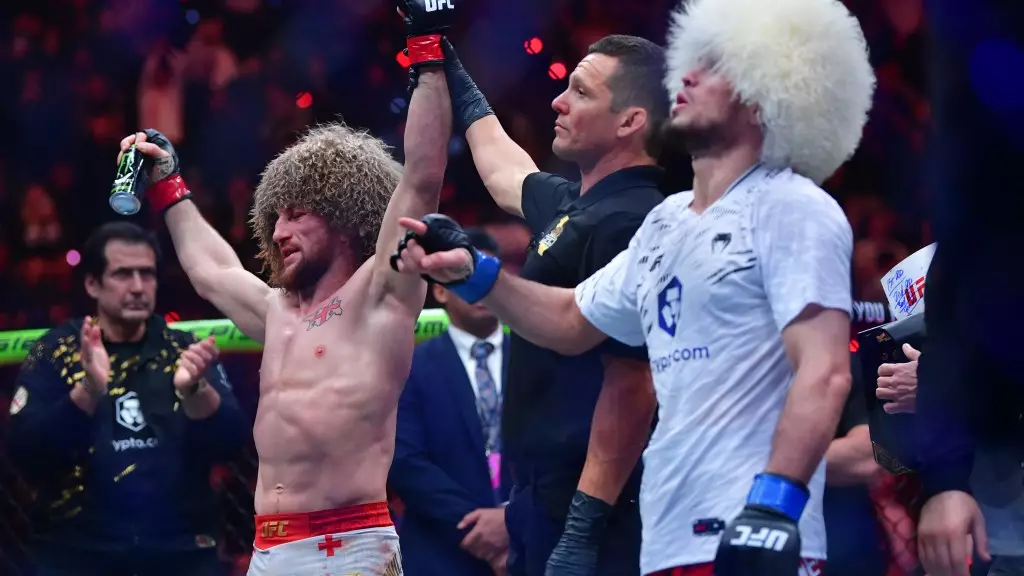Umar Nurmagomedov recently faced Merab Dvalishvili at UFC 311, an event that many expected would be a defining moment in the bantamweight division. Following the unanimous decision victory for Dvalishvili, which allowed him to retain his title, Nurmagomedov emerged from the octagon with mixed feelings. While he refrained from casting blame or making excuses for the outcome, it was clear that he believed the fight had not been decided fairly. His assertion that the battle should have concluded in his favor resonates with many fans and analysts, raising questions about the complexities of judging in the sport.
Despite publicly stating that he had “no excuses,” Nurmagomedov’s insistence that he did not lose the fight reflects a deeper struggle within an athlete who has always held high expectations for himself. This mental and emotional conflict is common among fighters, especially those like Nurmagomedov, who have cultivated a record of success prior to this notable setback. The psychological weight of professional sport can sometimes overshadow the physical performance, leading to self-doubt and frustration. Nurmagomedov’s strong words hint at a resilient mindset, one that refuses to accept defeat, even when the scorecards say otherwise.
One of the critical revelations that emerged post-fight was Nurmagomedov’s disclosure of a hand injury sustained in the opening round. This piece of information adds a layer of complexity to the fight analysis. Injuries can significantly alter a fighter’s performance, and while Nurmagomedov continued to compete fiercely, the limitations imposed by the injury may have influenced the fight’s dynamics. It raises an interesting point about the importance of context in assessing fight outcomes. How much does an injury factor into a decision when a fighter demonstrates remarkable tenacity? Nurmagomedov’s willingness to proceed, despite pain, showcases the warrior spirit prevalent in mixed martial arts—but it also complicates the narrative surrounding the fight.
Looking ahead, Nurmagomedov’s experience at UFC 311 could serve as both a valuable learning moment and a source of motivation. The fighter’s determination to regroup and return to form highlights an essential aspect of any athlete’s journey: resilience. The nature of competitive sports is such that one setback does not define a career. For Nurmagomedov, the imperative to turn this controversy into fuel for future success is clear; he has the tools, skillset, and support to rebound. How he channels his disappointment into preparation for future bouts will likely determine the trajectory of his career moving forward.
Nurmagomedov’s post-fight statements echo a sentiment familiar to many in the world of sports—the fine line between victory and defeat. The subjective nature of judging in MMA can lead to controversies that resonate long after the event itself concluded. In Nurmagomedov’s case, his unwavering belief in his performance speaks volumes about his character. As this young fighter contends with this challenging moment, the mixed martial arts community watches closely, eager to see how he channels his experiences into his next match. The path ahead may be uncertain, but one thing is clear: Umar Nurmagomedov is poised to remain a significant figure in the bantamweight division.

